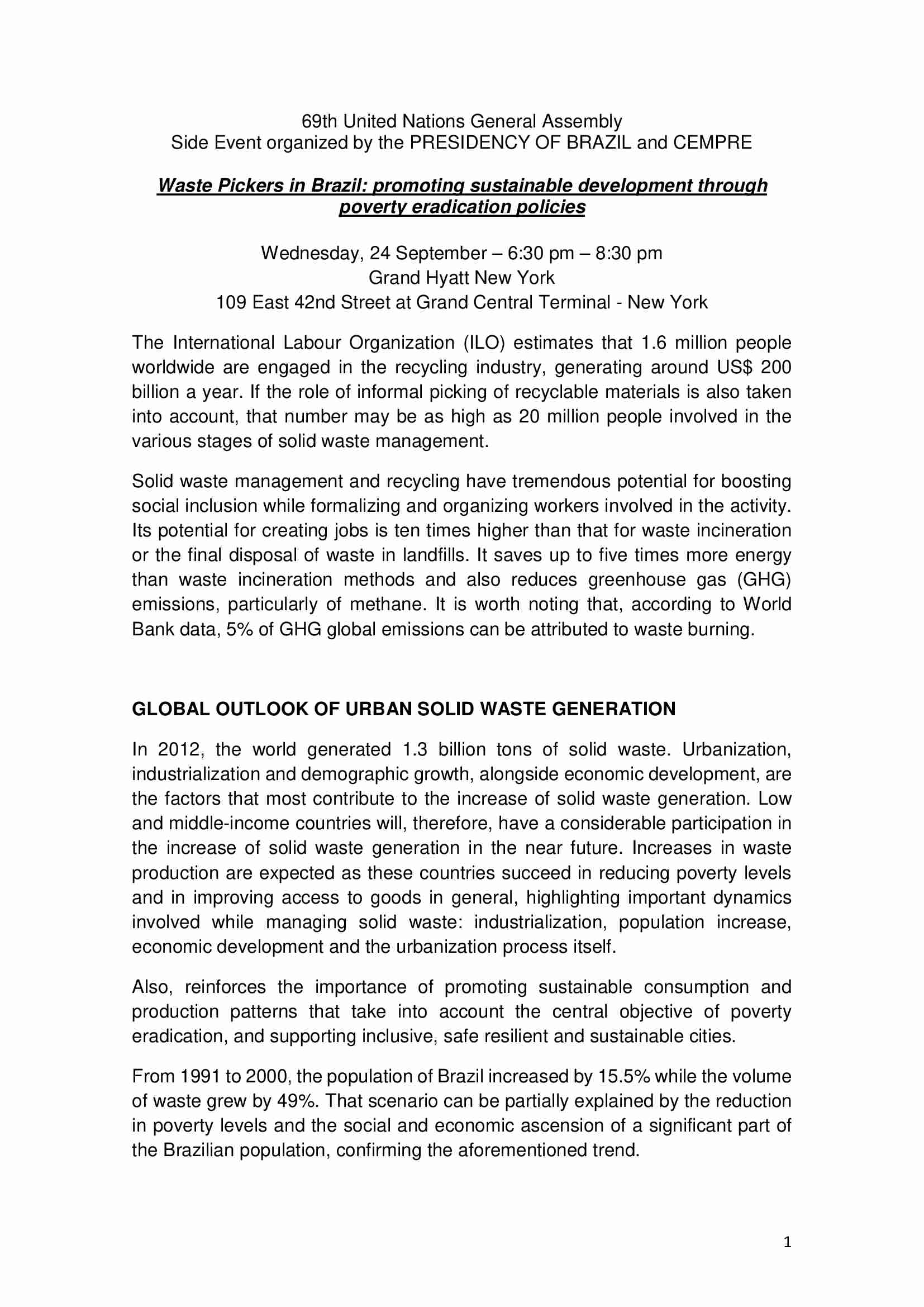Waste Pickers in Brazil: promoting sustainable development through poverty eradication policies
Concept note presented for 69th United Nations General Assembly's Side Event organized by the Presidency of Brazil and CEMPRE.
View list of all: Research Reports

